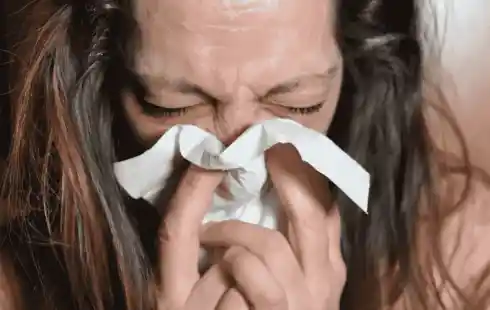
Fully Funded Scholarship Opportunity at the Bavarian International School for 2026-27
Section: News
 In the wake of the ongoing COVID-19 pandemic, heightened vigilance surrounds the escalating rates of virus infections. With the conclusion of the flu season, Austria finds itself grappling with the spread of parainfluenza viruses, for which there exists no vaccination.
In the wake of the ongoing COVID-19 pandemic, heightened vigilance surrounds the escalating rates of virus infections. With the conclusion of the flu season, Austria finds itself grappling with the spread of parainfluenza viruses, for which there exists no vaccination.
Rising Infections Prompt Virologist's Caution Seasonal variations often witness the proliferation of various viruses, precipitating waves of infections. Notably, the recent flu season exhibited a comparative mildness, with the State Office for Health and Social Affairs reporting 6,881 influenza cases in 2023/24, nearly half the tally of the preceding year. This data emanates from 70 pediatric and family medical practices, which furnish weekly updates. However, even as the flu wave recedes, Austria braces itself for a fresh surge in infections.
Virologist Judith Aberle of MedUni Vienna has sounded the alarm, citing the current uptick in parainfluenza virus infections according to Austrian sentinel data. These sentinel surveys, pivotal for monitoring communicable diseases, analyzed 83 samples in the 16th calendar week, with 16 percent indicating parainfluenza viruses, surpassing the prevalence of common cold viruses at 15 percent. Additionally, a tragic case in the Netherlands underscores the severity of prolonged corona infection, with a man succumbing after a 613-day battle.
Perils of Parainfluenza Viruses Unveiled Reflecting on the burgeoning wave of infections, Professor Aberle highlighted the prevalence of type 3 parainfluenza viruses during spring, particularly affecting infants and children. Projections indicate a further surge in infections over the ensuing weeks, with toddlers under two years old deemed particularly vulnerable.
Type 3 parainfluenza infections, currently in circulation, pose significant health risks, triggering pneumonia and bronchiolitis in infants and immunocompromised individuals. These ailments mirror those induced by Respiratory Syncytial Virus (RSV), disproportionately impacting the elderly and immunocompromised. Regrettably, no vaccination exists against parainfluenza viruses, underscoring the imperative of preventive measures, primarily avoiding contact with infected individuals.
Image by Renate Koppel from Pixabay

Section: News

Section: Arts

Section: Travel

Section: Arts

Section: Arts

Section: Arts

Section: Fashion

Section: Politics

Section: Fashion

Section: News
Both private Health Insurance in Germany and public insurance, is often complicated to navigate, not to mention expensive. As an expat, you are required to navigate this landscape within weeks of arriving, so check our FAQ on PKV. For our guide on resources and access to agents who can give you a competitive quote, try our PKV Cost comparison tool.
Germany is famous for its medical expertise and extensive number of hospitals and clinics. See this comprehensive directory of hospitals and clinics across the country, complete with links to their websites, addresses, contact info, and specializations/services.
Join us at the Kunstraum in der Au for the exhibition titled ,,Ereignis: Erzählung" by Christoph Scheuerecker, focusing on the captivating world of bees. This exhibition invites visitors to explore the intricate relationship between bees and their environment through various artistic expressions,...



No comments yet. Be the first to comment!